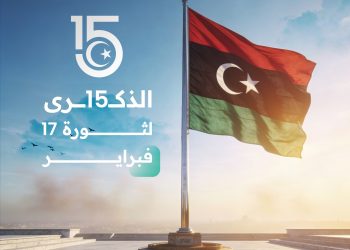By: Nihal Zaroug
The General National Congress’ Committee for Endowments and Religious Affairs has condemned an article purportedly posted . . .[restrict]on Libya Almostakbal, an independent online news site based in London and founded by human rights activist and former congressman Hassan Al-Amin.
The article, reportedly entitled “Readers’ comments on their opinion of Dar Al-Ifta” and authored by an “Luqman Al-Hakim” (believed to be an alias), allegedly attacked Libya’s Grand Mufti, Sheikh Sadeq Al-Ghariani, the Dar Al-Ifta and, according to the Committee, mocked the sanctity of God.
The article is no longer available, apparently having been removed from the website.
An apology to the Mufti, the Dar Al-Ifta and the public has been demanded by the Committee.
During the Committee’s meeting on 3 April, it decided that legal action would be taken against the site if it continued to “publish such articles”, the content of which was deemed too offensive to repeat. In a separate meeting, the Committee discussed the prospects of activating a religious TV channel to help spread Islamic values, culture, knowledge and notions of justice and moderation.
The Grand Mufti has released a statement on his official website, also condemning “Al-Hakim’s” remarks and highlighting the alleged claims that have caused concern.
Although, the article in question, said to be dated 1 April, is no longer online, Libya Almostakbal features a readers’ discussion titled “The Role of the Mufti in New Libya”.
The website asks readers to “purposefully and responsibly” share their opinions on a number of questions relating to Sheikh Ghariani’s role and that of the Dar Al-Ifta.
This same online debate posted on 26 March, could have been the bases of “Al-Hakim’s” article. A comment by a “Luqman Al-Hakim” can be found in the thread criticising the Grand Mufti. Within the thread, a post addressed to “Al-Hakim”, encourages him to speak openly using his real name and not hide behind a pen-name.
A quick read through the comments and it becomes clear that there is little consensus on the role of the Mufti and Dar Al-Ifta. Some want no religious links to politics and say faith should be practiced privately. Others express gratitude for both the Mufti and Dar Al-Ifta in guiding the country, without which they fear Libya would stray from the paths of Islam.
Recently, a call by Ghariani on the government to ban Libyan women from marrying foreigners has upset large number of both women and men who have said that they firmly believe that such a matter should not to be decided by the Mufti. The feedback on social media has also largely been critical.
However, in a private discussion held with a group of Libyan women from varying backgrounds, one social worker told the Libya Herald that she believed the call was in the best interests of Libyan women. However, she stressed it was only because of the absence of laws to protect married women and grant their children rights. Such a ruling, she said , would safeguard Libyan women from falling into situations where they could not legally request help or be protected. She claimed she had noticed a rise in cases of diseases in Libyan women recently married to foreigners. She attributed this to the lack of border controls and health screening of immigrants, many of who, she said, had entered the country illegally.
[/restrict]






